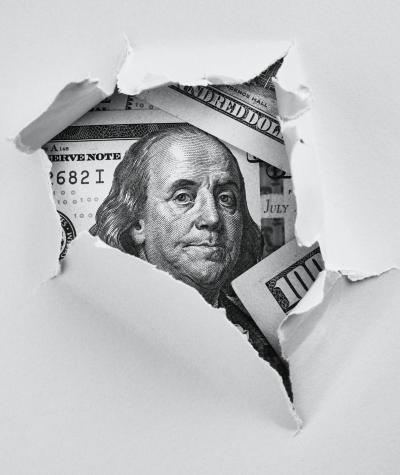Outside spending groups like super PACs can wield enormous influence over our elections, and it’s important — and legally required — that these groups’ election spending be properly disclosed so that voters can evaluate electoral ads equipped with complete and accurate information about the sources behind money spent to influence their vote and our government.
The super PAC “Last Best Place PAC” has recently drawn attention for its ads attacking Tim Sheehy, a candidate in the Republican primary election for the U.S. Senate in Montana.
Since September 2023, it has reportedly spent over $5.8 million on such ads, some of which expressly advocated against Sheehy. Yet it has failed to properly disclose complete and accurate information regarding at least some of those ads as the law requires, undermining the electoral transparency that is crucial for voters.
In its 2023 end-of-year report filed with the FEC at the end of January, Last Best Place PAC reported all of its media spending as operating expenditures — lumping its spending on political ads together with staff salaries, rent, office supplies, and other overhead costs.
In fact, the super PAC explicitly stated in its report that “the committee’s media and advertising disbursements were not for independent expenditures.”
Here’s why that statement was wrong. One ad that the super PAC paid for was an “independent expenditure,” an ad that expressly advocates for or against a clearly identified candidate.
The ad, titled “Shady Sheehy,” attacked Sheehy and specifically referred to his campaign for the Senate, in a way that left no room for doubt that it was urging voters to oppose his candidacy:
"They got a home loan and paid it back. She got a car loan and paid it back. But this multimillionaire got an over-$770,000 government loan and never paid it back. But Tim Sheehy doesn’t think he should be held accountable. Sheehy got rich off government contracts, walked away from his loan, and now, he and his campaign can spend millions trying to buy our Senate seat. Shady Sheehy. He’s just out for himself."
The “Shady Sheehy” ad clearly referred to the 2024 election and to Sheehy as a federal candidate. And by accusing Sheehy of “getting rich off government contracts” and “walk[ing] away from a loan,” while labeling him “shady,” the ad clearly depicted Sheehy as a crooked or untrustworthy person — someone unfit to hold public office — and it directly links those characterizations to his Senate candidacy by suggesting he would “try[] to buy [a] Senate Seat.”
Viewed as a whole, the only reasonable interpretation of this ad is that it was urging voters to oppose Sheehy’s Senate campaign.
The ad was thus “express advocacy,” and, accordingly, an “independent expenditure,” triggering specific FEC reporting requirements that Last Best Place PAC failed to comply with.
That’s why Campaign Legal Center filed a complaint with the Federal Election Commission (FEC) against Last Best Place PAC for violating federal campaign finance laws.
Under the Federal Election Campaign Act (FECA), any independent expenditure of more than $10,000 made more than 20 days before an election must be disclosed within 48 hours.
By failing to timely disclose the “Shady Sheehy” ad — which aired more than 20 days before the Montana GOP primary election and appears to have met the spending threshold — as an independent expenditure, Last Best Place PAC violated the law and deprived voters of key, real-time information about the ad.
Furthermore, Last Best Place’s end-of-year filings showed that it is wholly funded by Majority Forward — the 501(c)(4) dark money group associated with SMP (formerly “Senate Majority PAC”), a super PAC that is closely aligned with the Democratic Party and Senate Majority Leader Chuck Schumer.
Since 2020, SMP has spent over $700 million supporting Democratic candidates for the U.S. Senate.
Last Best Place PAC quickly drew attention after it was formed in September 2023 and launched its first ads critical of Sheehy.
There were signs that this super PAC spending money attacking a Republican primary candidate was actually tied to the Democratic Party, including that it appeared to be using an unknown media vendor that happened to share an address with a prominent Democratic Party media vendor.
The independent expenditure reports that Last Best Place PAC failed to file would have confirmed — five months before its end-of-year report did confirm — that all of its spending on election ads went to “Mountain Media,” an apparent shell company or corporate alter ego of the better-known “Old Town Media,” which has received millions from Democratic candidates and PACs.
In January 2024, just days before Last Best Place PAC filed its report with the FEC, SMP confirmed to the Huffington Post that it was bankrolling the group.
Yet when the filing came out, SMP’s name appeared nowhere in the paperwork. It had pulled a sleight of hand by funneling the money through its 501(c)(4) vehicle, Majority Forward.
By failing to report its independent expenditures as the law requires and exploiting legal loopholes, Last Best Place PAC concealed that its ads attacking Sheehy were ultimately financed by a major Democratic Party dark money group.
That obviously deprived voters of key information they needed to evaluate the super PAC’s effort to influence their votes.
Transparency is essential to our elections, and the FEC must investigate and enforce apparent violations of federal campaign finance laws designed to uphold transparency.
